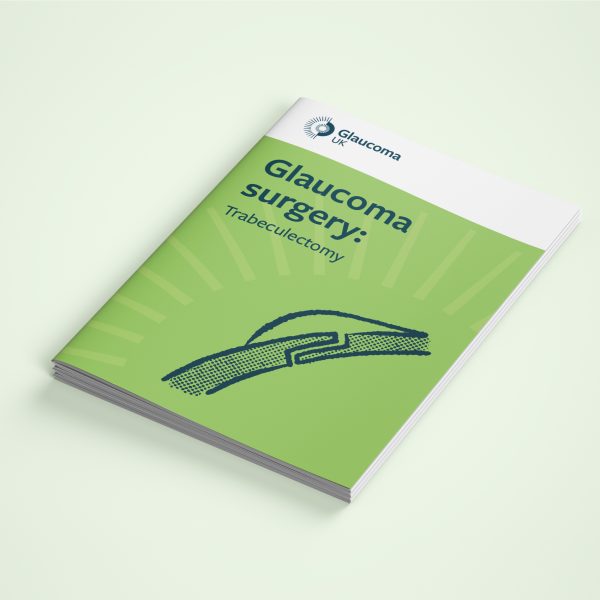Trabeculectomy Surgery in UK
Trabeculectomy surgery is one of the most commonly performed procedures for patients with glaucoma when medications and laser treatments fail to control eye pressure. In the UK, this procedure is widely available under the NHS and through private clinics, offering patients multiple options depending on their urgency, budget, and preference for surgeon choice.
This article provides a comprehensive guide to trabeculectomy surgery in the UK, including how it is performed, average recovery time, success rates, and typical costs under NHS and private care.
How Trabeculectomy Surgery Works
A trabeculectomy creates a small drainage channel in the sclera (white part of the eye) to allow fluid (aqueous humor) to bypass the blocked natural drainage system and lower intraocular pressure (IOP).
Key steps of the procedure:
A flap is created in the sclera to form a controlled drainage pathway.
Fluid drains under the conjunctiva, forming a small bubble-like reservoir called a bleb.
The surgeon may use anti-scarring agents like Mitomycin C to reduce the risk of closure.
Trabeculectomy is usually done under local anesthesia and takes about 45–60 minutes per eye.
Who is a Candidate for Trabeculectomy?
This surgery is recommended for patients with:
Uncontrolled IOP despite maximum tolerated eye drops or laser treatment.
Advanced glaucoma threatening vision.
Rapidly progressing glaucoma where vision loss is significant.
It may also be combined with cataract surgery if both conditions need surgical intervention.
NHS vs. Private Trabeculectomy Surgery
Patients in the UK have two primary routes for undergoing trabeculectomy:
NHS (National Health Service): Covered for eligible patients. There is no direct cost, but waiting times may vary between 8–18 weeks depending on urgency and hospital capacity.
Private Care: Offers faster scheduling, choice of surgeon, and more flexible follow-up schedules. Costs typically include surgeon’s fee, hospital fee, anesthesia, and post-operative care.
Cost of Trabeculectomy in UK
The average private cost of trabeculectomy surgery in the UK ranges between £3,500 – £5,000 per eye, depending on location, surgeon experience, and hospital facilities.
Patients covered by private health insurance should check if:
Trabeculectomy is fully covered under their policy.
Anti-scarring medications (Mitomycin C) are included in the claim.
Post-operative visits and revision procedures are part of the package.
Those without insurance can choose self-pay packages, which often include consultation, surgery, and a set number of follow-up visits.
Success Rates and Long-Term Outcomes
Trabeculectomy is highly effective for lowering IOP:
Success Rates: Approximately 70–80% of patients achieve target IOP without further surgery within five years.
Medication Reduction: Many patients require fewer or no drops after surgery.
Long-Term Monitoring: Regular follow-ups are essential to check bleb function and prevent complications.
Risks and Complications
As with any eye surgery, trabeculectomy carries some risks, including:
Infection (endophthalmitis) – rare but serious
Hypotony (very low IOP) – may require surgical revision
Scarring or bleb failure – can limit success, sometimes needing repeat surgery
Cataract formation – may accelerate after trabeculectomy
Your surgeon will discuss these risks and advise on preventive measures like using anti-scarring agents and close follow-up.
Recovery After Trabeculectomy
Recovery time varies but most patients can resume normal activities after 2–4 weeks, avoiding strenuous exercise, swimming, and heavy lifting until cleared by the surgeon.
Typical recovery steps:
Use prescribed antibiotic and steroid drops to prevent infection and control healing.
Attend frequent follow-up visits during the first 2 months.
Report any sudden vision changes, pain, or discharge immediately.
When to Consider Trabeculectomy Over MIGS
In the UK, many clinics now offer MIGS (Minimally Invasive Glaucoma Surgery), which is less invasive and has a quicker recovery. However, trabeculectomy remains the gold standard when:
Eye pressure is very high and needs a substantial drop.
The patient has advanced glaucoma with significant optic nerve damage.
MIGS is unlikely to provide enough pressure control.
Tips for Patients Planning Surgery
Prepare Financially: If using private care, request a full written estimate including all fees.
Ask About Follow-Up Care: Confirm how many visits are included in the package price.
Get a Second Opinion: Especially if you are unsure whether MIGS or trabeculectomy is right for you.
Plan for Time Off: Arrange time off work and support for the first week after surgery.
Final Thoughts
Trabeculectomy surgery in the UK remains a reliable and effective option for patients with moderate to advanced glaucoma. With NHS coverage available for eligible patients and private options for those who want faster access, this surgery continues to protect vision and improve quality of life.
By understanding the procedure, costs, recovery process, and success rates, patients can make confident decisions about their glaucoma treatment and secure the best possible outcome for long-term eye health.




